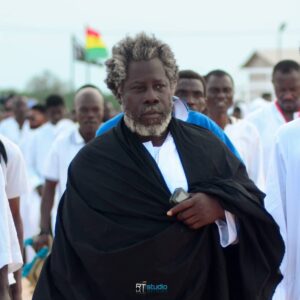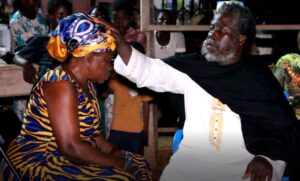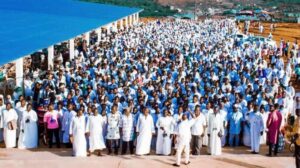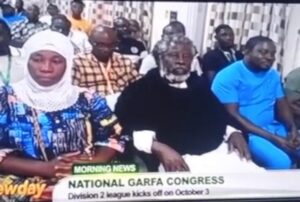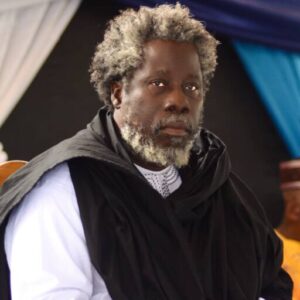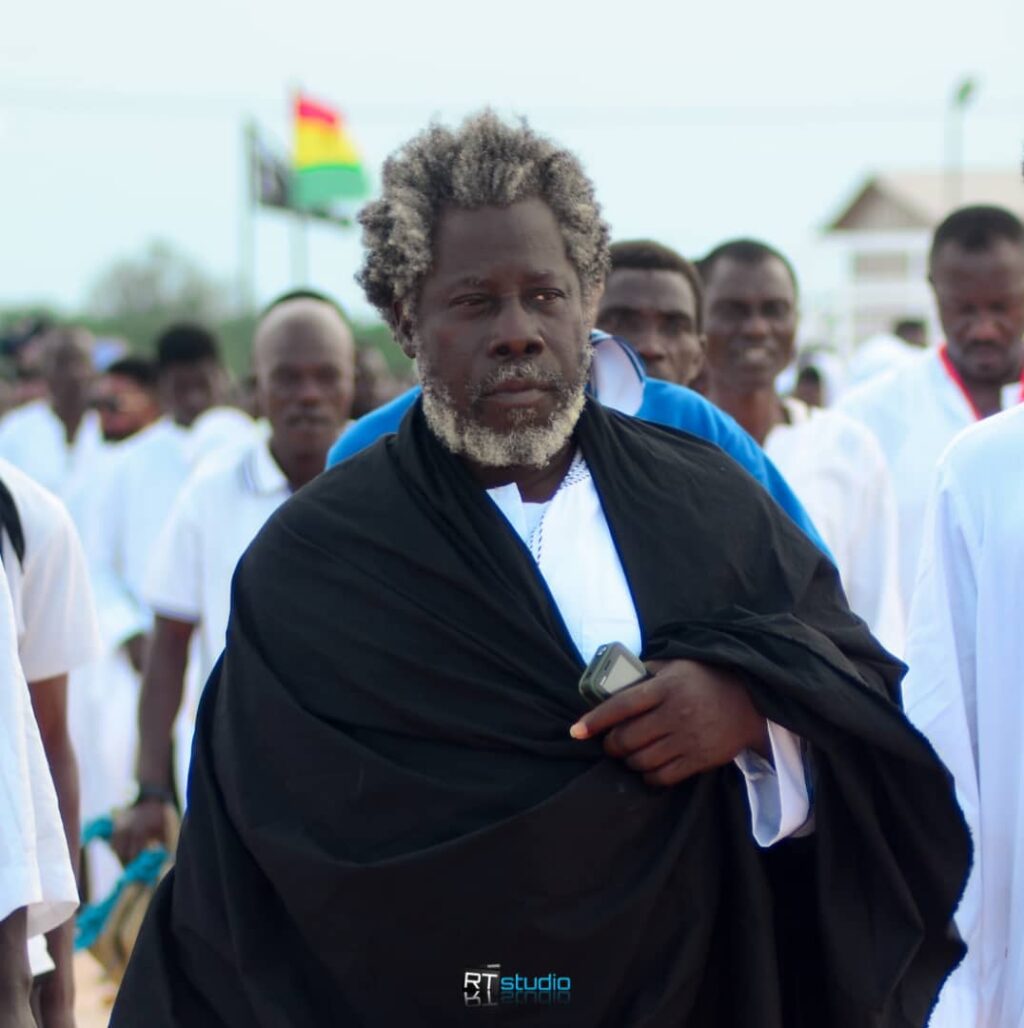
Casket Burials Violate Divine Ordinances, Asserts
Ɔkrɔnkrɔnyi Nyame Somafo Yawoh”
Written by Mensah Adinkrah, Ph.D.
Ɔkrɔnkrɔnyi Nyame Somafo Yawoh is the End Time Messiah. He is the Founder and Spiritual Leader of Asomdwee Ntonton Som, the Third Religion of the Most High God. The Most High God, the creator of the heavens, the earth and all that is within them is properly known as RABBI (Rah-Bee).
Ɔkrɔnkrɔnyi Nyame Somafo Yawoh’s teachings emphasize the importance of adhering to burial practices that align with the Most High God’s directives. In His teachings, He asserts that traditional casket burials are inconsistent with divine instructions. He asserts that casket burials were introduced by Europeans. According to Him, the Most High God did not send any of His messengers to Europe or the Americas; therefore, casket burials introduced by Christianity, Christian missionaries, and Europeans are fundamentally mistaken.
Ecclesiastes 6:3-5 describes the spiritual repercussions or ramifications of not receiving proper mortuary rituals and mourning rites, following death. For this reason, part of Ɔkrɔnkrɔnyi Nyame Somafo Yawoh’s spiritual mission is to educate the public about divinely and spiritually mandated mortuary and mourning rites. He cites Ecclesiastes 6:3-5 which states:
3 A man may have a hundred children and live many years; yet no matter how long he lives, if he cannot enjoy his prosperity and does not receive proper burial, I say that a stillborn child is better off than he. 4 It comes without meaning, it departs in darkness, and in darkness its name is shrouded. 5 Though it never saw the sun or knew anything, it has more rest than does that man—
Divine Burial Practices
According to Ɔkrɔnkrɔnyi Nyame Somafo Yawoh, the deceased should be transported to the cemetery on a bier—a type of stretcher or open casket. This open casket, referred to as “bonto” among the Akan people of Ghana, is, according to Ɔkrɔnkrɔnyi Nyame Somafo Yawoh, in accordance with God’s wishes. The use of a bier is also documented in religious texts; for instance, Luke 7:11-17 describes its use in the context of a funeral procession.
Soon afterwardc he went to a town called Nain, and his disciples and a great crowd went with him. 12As he drew near to the gate of the town, behold, a man who had died was being carried out, the only son of his mother, and she was a widow, and a considerable crowd from the town was with her. 13And when the Lord saw her, he had compassion on her and said to her, “Do not weep.” 14Then he came up and touched the bier, and the bearers stood still. And he said, “Young man, I say to you, arise.” 15And the dead man sat up and began to speak, and Jesusd gave him to his mother. 16Fear seized them all, and they glorified God, saying, “A great prophet has arisen among us!” and “God has visited his people!” 17And this report about him spread through the whole of Judea and all the surrounding country.
Observations from Other Faiths
According to Ɔkrɔnkrɔnyi Nyame Somafo Yawoh, this practice is not unique to Asomdwee Ntonton Som. Both Islamic and Judaic traditions employ similar methods for transporting the deceased. In these faiths, regardless of an individual’s social status—be it a laborer or a leader—the body is conveyed to the burial site on a bier. This uniformity underscores a shared commitment to humility and simplicity in returning the deceased to the earth. By advocating for the use of a bier in burial rites, Ɔkrɔnkrɔnyi Nyame Somafo Yawoh calls for a return to practices that honor divine instructions, emphasizing equality and reverence in the face of mortality.
Casket Burials Impede the ‘Dust-to-Dust’ Mandate
According to Ɔkrɔnkrɔnyi Nyame Somafo Yawoh, casket or coffin burials practiced by Christians violate the divine mandate contained in Genesis 3:19. Genesis 3: 19 states:
19 By the sweat of your brow
you will eat your food
until you return to the ground,
since from it you were taken;
for dust you are
and to dust you will return.”
In contemporary Ghana, it is customary to inter deceased relatives using wooden or metal caskets, which are then placed in tiled graves. This practice prevents the body from making direct contact with the earth, thereby hindering the fulfillment of the “dust-to-dust” directive. Conversely, members of Asomdwee Ntonton Som adhere to burial practices aligned with divine teachings, wrapping the body in calico and placing it directly into the earth. This method reflects the belief that individuals should depart life in the same manner they entered it. As Ecclesiastes 5:15 states, “As he came forth from his mother’s womb, naked shall he return to go as he came, and shall take nothing of his labor, which he may carry away in his hand.”

